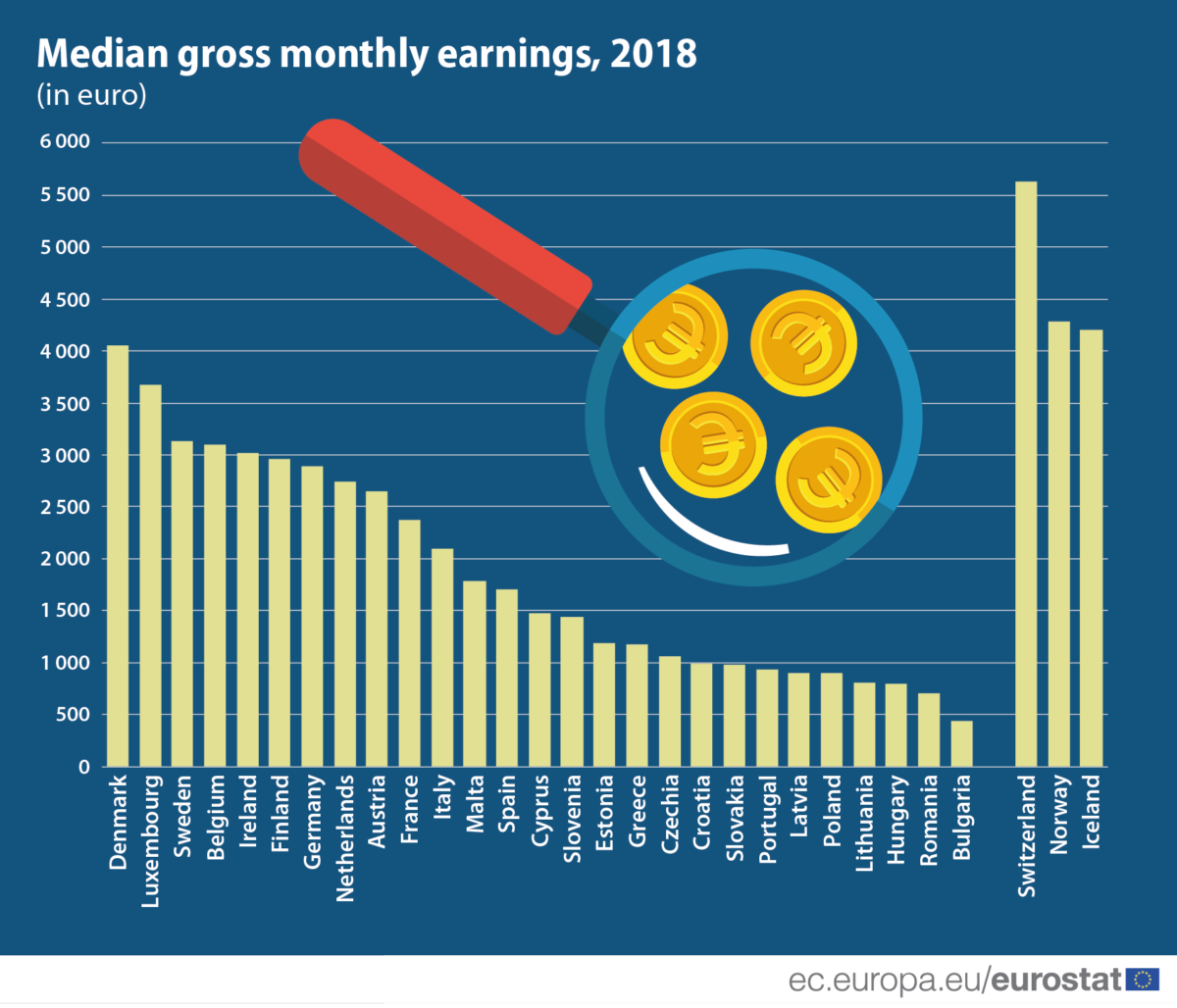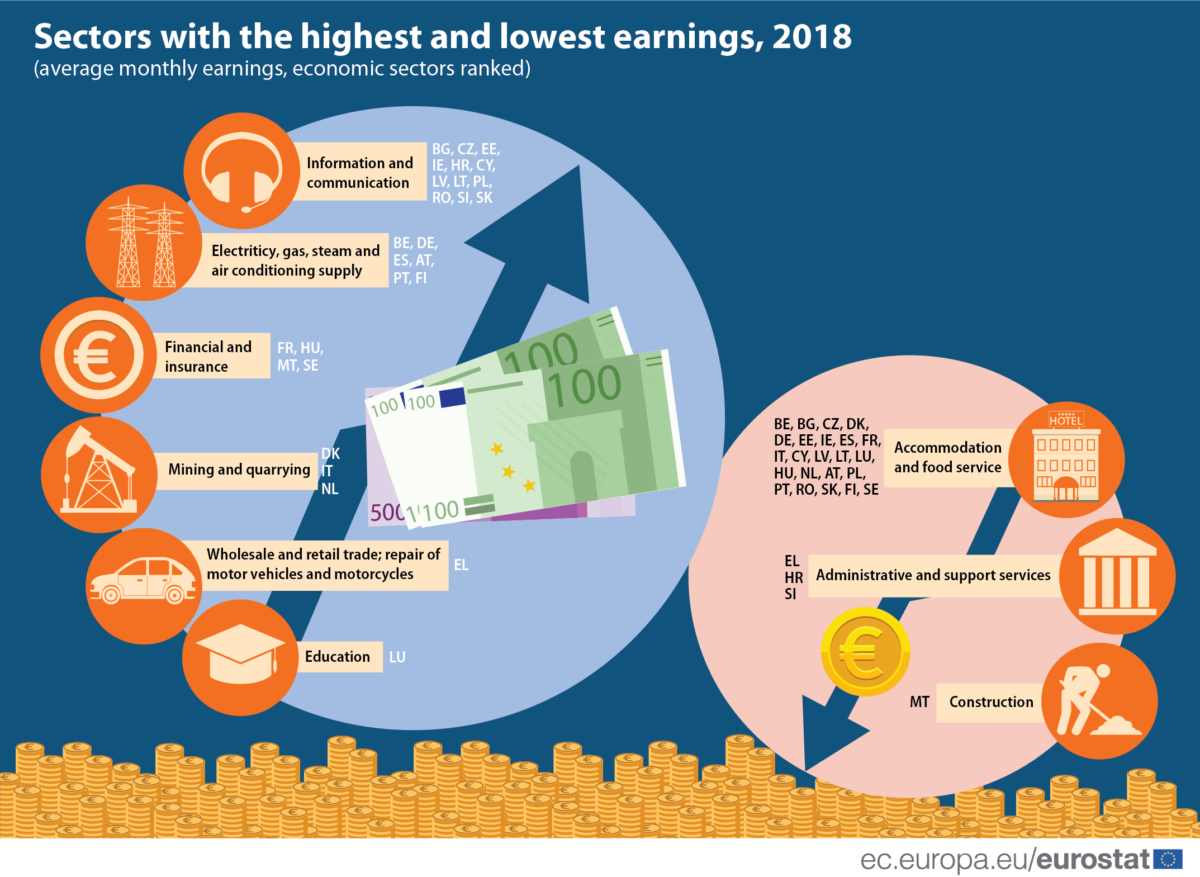It is no secret that gross monthly earnings vary considerably across the EU. On one end of the spectrum, Scandinavian countries and Northern parts of the EU 27-nation bloc are known to have both higher wages and a higher cost of living.
On the other end, Eastern EU Member States tend to see lower costs and lower wages.
A Eurostat report, in fact, shows that in 2018, median monthly earnings varied from €4,057 in Denmark to €442 in Bulgaria.
Joining Denmark at the top of the list was Luxembourg with median earnings of €3,671 per month, followed by Sweden (€3,135), Belgium (€3,092), Ireland (€3,021), Finland (€2,958) and Germany (€2,891).

At the other end of the scale, Bulgaria stood out with its median monthly earnings of €442. The countries coming closest were Romania with €700 per month, Hungary with €801 and Lithuania with €809.
Malta sits just above the EU average in 16th place at median monthly earnings of €1,787, just above Spain (€1,708) and under Italy (€2,102).
What are the best paying sectors?
In a previous Eurostat report, the most lucrative sectors within the various member states were also identified.
Where information and communication pay the most in 12 out of the 27 EU member states, and the electricity, gas, steam and air conditioning supply sector was the highest paying in six, only France, Hungary, Malta and Sweden are reported to have financial and insurance activities as the highest paying sector.

On the other end of the spectrum, Malta was alone in its construction sector recording the lowest pay, with the vast majority of nations reporting their accommodation and food services sector had the lowest pay, whereas in Malta this industry paid the second-lowest.
The report considers gross monthly earnings, referring to wages and salaries earned by employees in a reference month (generally October 2018), before the deduction of tax and social security contributions.
Passenger traffic between Malta and Gozo grew by nearly 8% in Q2 2025
Vehicle crossings and fast ferry usage also surged
New Malta-backed incubator to fuel Europe’s semiconductor startups
The ChipStart EU program provides a one-year, no-cost incubation opportunity for semiconductor startups in the European Economic Area
Government renews scholarship scheme for tech postgrads
In 2024 the Pathfinder Digital Scholarship issued €125,000 in funding, supporting 13 Master’s and 3 PhD students






